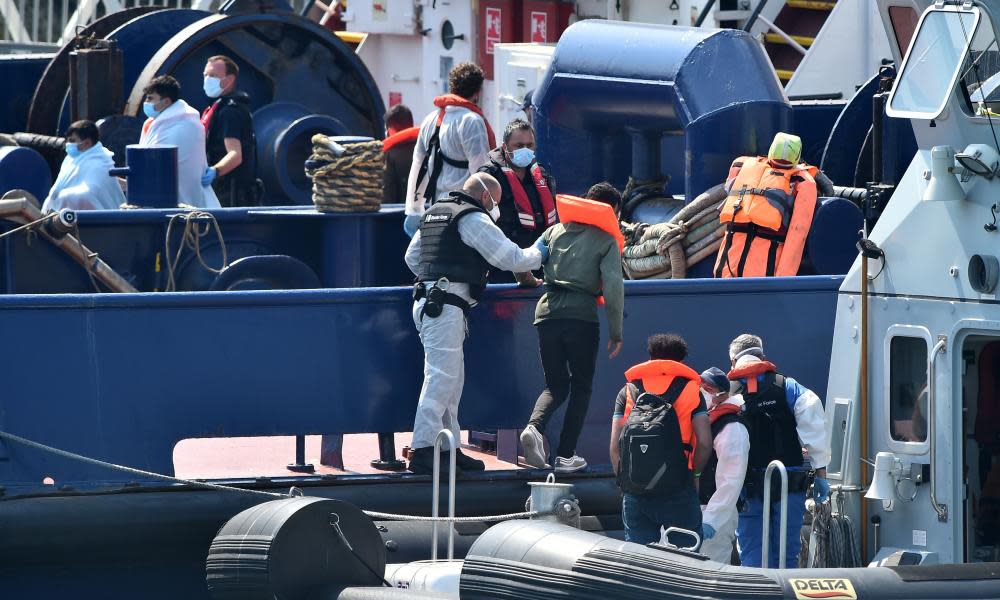The Guardian view on Channel migrants: shame on the scaremongers

What do the images of cramped dinghies in the Channel make you feel when you see them? Or pictures of their passengers on the decks of grey Border Force vessels, or disembarking on beaches? More than 4,100 migrants and refugees have reached the UK this year so far in small boats, most of them arriving in Kent. Almost 600 arrived in a surge of crossings between Thursday and Sunday last week.
While they remain a tiny proportion of the total number of asylum seekers in the UK, which was 35,566 in 2019, the steep increase in arrivals has thrust immigration and asylum back to the top of the news. But the hate mill has been grinding away for months, with the Brexit party leader, Nigel Farage, using his social media channels and appearances to churn up public anxiety about what these migrants might do when they get here – while crushing out any grains of more generous impulses.
There is no question that the crossings are a problem. The Channel is the world’s busiest shipping lane. Unlicensed journeys in small boats across the Mediterranean have ended in disaster. The new arrivals include children, around 400 of whom are being looked after by Kent county council.
No one knows exactly why the traffic has increased so much. Boris Johnson and his ministers, as well as Mr Farage, appear determined to amplify the role of traffickers. But the more likely explanation could be that the pandemic has made entering the UK by other means (air, lorry, ferry) harder, while the weather has made crossing by boat safer than at other times. The conditions at Calais are awful. Far worse are the political and humanitarian situations in many of the countries where the migrants come from – Iran, Iraq, Afghanistan, Sudan – and from which they view the UK as their longed-for safe haven.
Whatever the reasons for the surge, the UK government’s reaction has been reprehensible. Migration is a difficult global issue that requires international cooperation. For European democracies, with long histories of entanglement with many of the nations that people are fleeing, it presents particular challenges. But having set their face against the EU with their campaign to “take back control” and lacking a plan to replace the Dublin Convention, which enables EU countries to remove some asylum seekers, ministers now appear to be panicking.
How else to describe the threats by the home secretary, Priti Patel, to make the navy force boats back to France, or the creation of the new post of “clandestine Channel threat commander”? What does it mean for Boris Johnson to declare crossing the Channel in a small boat to be “dangerous and criminal”, when people have the right to travel to claim asylum under UN rules dating back to 1951?
Not a single refugee has been legally resettled in the UK since March, when an existing scheme was suspended due to Covid-19. Restarting this system (or explaining when the pause will end), so that claims can be processed without people having to present themselves first, is the obvious route back to some form of order. Serious talks with the EU, above all France, will obviously require give as well as take. Last year Germany processed 165,615 asylum claims, and France 151,070. Neither they nor other governments are obliged to help the UK out.
Two years ago Donald Trump showed the world how low an elected western leader could go on migration with his policy of separating families at the Mexican border. This week, the UK’s home secretary was singled out for praise by our most xenophobic national political figure, Mr Farage. Ms Patel, and more importantly her boss, Mr Johnson, a man who purports to venerate Winston Churchill and the postwar international order that was his legacy, should both be ashamed.


